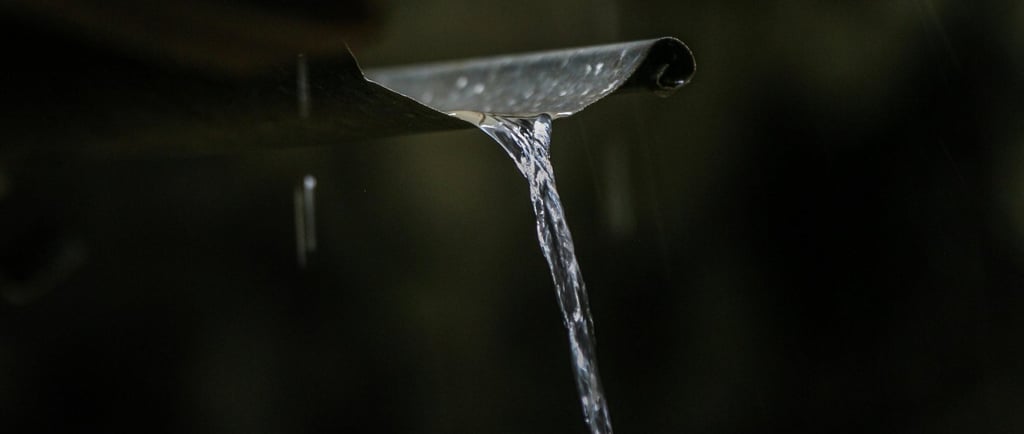Collecting Rainwater Safely in Survival Situations
WATER SURVIVAL


Why Rainwater Is a Gift
In survival, finding clean water can be exhausting and dangerous. Streams may carry parasites, and urban water sources are often contaminated. Rainwater, on the other hand, is one of the purest and most reliable sources available. It falls straight from the sky, free from most pollutants, and can be collected almost anywhere. Learning how to gather and store it properly can give you a steady supply of safe drinking water.
Choosing the Right Collection Surfaces
The surface you collect from matters. Fresh leaves, clean tarps, or plastic sheets are ideal because they channel water without adding contaminants. Roofs may seem convenient, but they often carry dirt, bird droppings, or chemicals from building materials. If you must collect from a roof, filter and boil the water before drinking. Whenever possible, aim to use smooth, non-toxic surfaces to minimize risk.
Simple Collection Methods
Even without equipment, rain can be harvested easily. Place any containers you have, such as pots, bottles, buckets, or even hollowed-out logs, directly under the rainfall. Large leaves can funnel water into smaller containers. If you have a poncho, tarp, or plastic bag, stretch it into a shallow basin or slope it to channel water into a bottle. Improvised funnels made from cut bottles or folded bark also work well.
Using Clothing and Fabric
If no container is available, fabric can serve as a temporary water collector. Lay out clean clothing, sheets, or towels in the rain, then wring the water into your mouth or into a container. Even absorbent moss or sponges can be used in the same way. While not efficient, this method can provide precious sips in emergencies.
Maximizing Yield in Heavy Rain
When rainfall is strong, efficiency matters. Spread out as many collection surfaces as possible. Large plastic sheets or tarps create the highest yield, especially if angled toward containers. Digging shallow pits and lining them with plastic also helps trap water. In urban ruins, place containers under broken gutters or drainage points where water flows heavily. The more surface area you create, the more water you will collect.
Storing Collected Rainwater
Once you have water, storage is critical. Use clean bottles, jars, or cans. If none are available, line bags or pouches with plastic to hold water temporarily. Always cover storage containers to prevent insects, dirt, or debris from contaminating the supply. Rainwater that sits uncovered quickly becomes unsafe, so keep it sealed and drink it within a day or two unless purified further.
Purifying Rainwater When Needed
Fresh rain is generally safe, but collection methods can introduce risks. Water flowing off dirty surfaces or into unclean containers may pick up harmful material. Whenever possible, boil rainwater or run it through a filter before drinking. This adds an extra layer of safety, especially in cities where airborne pollution may taint rainfall.
Common Mistakes to Avoid
Do not collect rainwater from surfaces coated with chemicals, paint, or tar. Avoid containers that held toxic substances such as fuel or cleaning agents. Do not assume every downpour provides safe water. In industrial zones or near chemical plants, rain may carry pollutants. Always judge your surroundings before drinking directly.
Psychological Relief in a Storm
Rainwater collection is not only practical but also uplifting. In moments of desperation, standing in the rain with a container filling drop by drop can feel like nature is helping you survive. That psychological boost reduces fear and restores hope, which is just as valuable as hydration itself.
Turning the Sky Into a Lifeline
Rainwater is one of the simplest survival gifts available. With basic tools, or even with none at all, you can drink directly from the sky. By choosing safe collection surfaces, maximizing yield, storing carefully, and purifying when needed, you turn every storm into a chance for survival. In difficult times, knowing how to use rain effectively may keep you alive when every other source seems too risky.